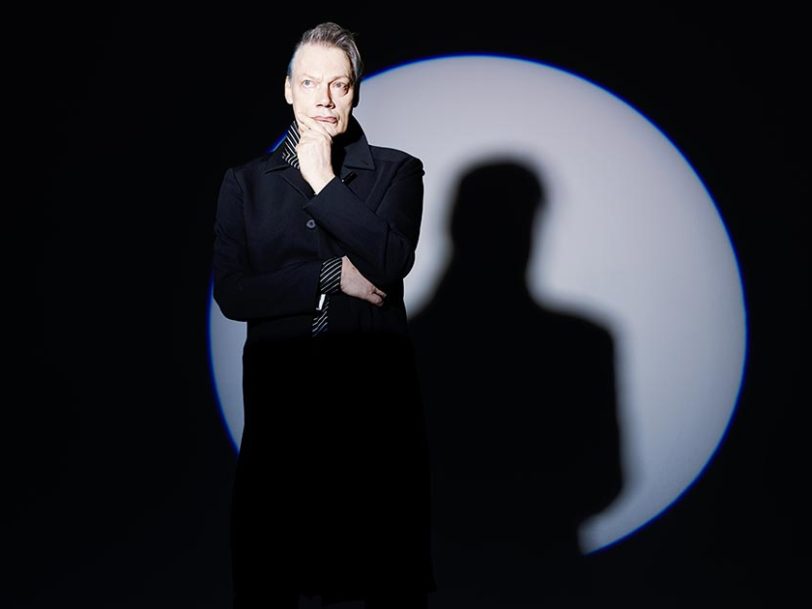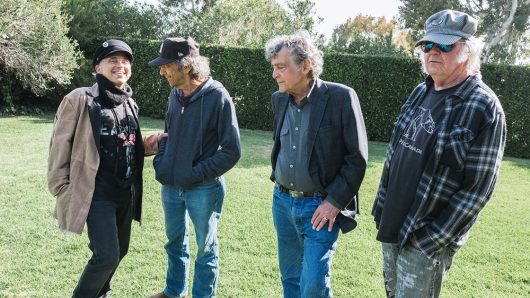As the 21st century approached, William Orbit went stratospheric. His production work with Madonna (1998’s Ray Of Light album) and Blur (the following year’s 13) had resulted in critically acclaimed records for both artists at a time when Orbit’s own discography had grown to straddle electronic and classical music. As comfortable fashioning chart hits as he was reclining in a wash of ambient sound, his sonic fingerprints could be found on everything from Pink pop anthems (the Beck-penned Feel Good Time) to U2 soundtrack contributions (The Hands That Built America, written for Martin Scorsese’s Oscar-nominated drama Gangs Of New York) and the best All Saints songs (Pure Sures, Black Coffee). So when everything went quiet for Orbit in 2014, following the fifth instalment in his Strange Cargo series, one of the most distinctive production styles of the last quarter century seemed to disappear into a black hole. Now, following a near decade-long silence, Orbit is back with his first album in eight years, The Painter, and the assertion that he is once again “ready to be of service”.
“I’m flowering,” Orbit tells Dig! of his sudden creative resurgence. “Like something’s been underground for years and pops up and goes. ‘Right, OK. Let’s come back to a brave new world.’ That’s what it feels like.”
Listen to ‘The Painter’ here.
“I imploded under lifelong forces. It wasn’t pretty”
“Brave” is an apt word. Orbit’s declining productivity – and eventual disappearance – was precipitated by an unexpected turn to drug use in his early 60s, followed by a psychotic break that resulted in hospitalisation. But if The Painter is an album which, Orbit says, explores “safety and trust and family and fairness… it’s meant to provide comfort as well as joy”, Orbit himself is a portrait of survival.
“I imploded under lifelong forces,” he reveals today. “I finally believed what I’d been told as a child. And it wasn’t pretty.
“I wasn’t connecting with anything,” Orbit continues – including his music. “When I was manic, I was fascinated by my own mania – sort of like survival. But when I was in a dark pit, the only thing I could watch was videos about submarines.”
There lies a visual metaphor almost too obvious for comfort, but Orbit’s fascination with the Royal Navy actually dates back to his childhood. “I was an unruly and disruptive child because I was unhappy. And I wasn’t very good at discipline,” he says. “But I wonder if I’d ever gone into a world where discipline was the framework, how that would have changed me.”
Candidly stating that his breakdown was the result of a childhood in which he was brought up to believe he “was the cause of everybody’s problems in my immediate family… It was just mental abuse… It’s the power of family,” Orbit says that he has had to look for his family unit elsewhere in life.
“The one I was born with – there were a couple of nice pockets, but the nuclear family did me no favours,” he asserts. “I found my family in like-minded people.”
“They’ve given me something of absolute utter soulfulness”
Singers, artists and other creatives make up the adult Orbit’s nearest and dearest, and they were all on hand to help him record The Painter during lockdown, with long-term collaborators such as Beth Orton, and more recent associates Polly Scattergood and Katie Melua, recording vocals on laptops in their kitchens and sending them to Orbit. Songs such as The Diver, featuring an ethereal turn by Natalie Walker, may ostensibly seem to reflect Orbit’s fascination with the deep, but Walker’s lyrics also capture Orbit’s late-career bloom, as she sings, “Time passes by but I start noticing/I’m looking at my future in the deep green forest.”




